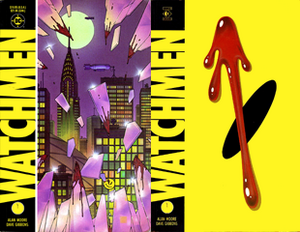Whether we write about early 20th century aristocrats or sparkly vampires, super-heroes or detectives, most writers want to inject a sense of realism into our stories.
Characters should always be believable, and plot developments should grow out of the choices they’ve made and the world they live in, not random events.
However, knowing when a plot development comes across as believable
or not can be difficult.
One of the most believable works of fiction I’ve encountered recently is Downton Abbey, the British historical drama airing on PBS in the U.S. I’ve sung DA’s praises before, and it remains an engaging and thoughtful drama every writer of fiction should study.
One of the most believable works of fiction I’ve encountered recently is Downton Abbey, the British historical drama airing on PBS in the U.S. I’ve sung DA’s praises before, and it remains an engaging and thoughtful drama every writer of fiction should study.
No show is perfect, however, and DA started to show the cracks
in its fine dinnerware this season through the near back-to-back deaths of two
major characters. Spoiler warning: Read
no further if you don’t want plot details of the third season spoiled for you.
First, Lady Sybil died in childbirth in a wholly believable and heart-wrenching sequence.
Then viewers were rocked again in the season finale. Matthew Crawley, husband of Sybil's sister, Mary, and father of Mary's newborn son, died in a car crash.
Then viewers were rocked again in the season finale. Matthew Crawley, husband of Sybil's sister, Mary, and father of Mary's newborn son, died in a car crash.
I’ll give series creator Julian Fellowes props for
foreshadowing Matthew’s exit. Fellowes
built Matthew up as a character we care about, a handsome young lawyer whose business savvy
saved the family from financial ruin.
Matthew’s impulsive streak was also well displayed this season, making the circumstances of his demise somewhat credible.
Matthew’s impulsive streak was also well displayed this season, making the circumstances of his demise somewhat credible.
And Fellowes had to manage an all-too-real situation of series television: Sometimes actors want to leave.
Still, I have two complaints concerning Matthew’s death. One is that he, like Sybil, died right after becoming a parent. The second is the rather obvious way Matthew was played up to be the family savior this season.
Real Life, Fiction, and Coincidence
Real Life, Fiction, and Coincidence
Yes, I know eerie coincidences happen in real
life. And I’ve experienced first-hand how families can be devastated by one
senseless tragedy after another.
But therein lies the difference between fiction and reality.
Reality doesn’t have to make sense; fiction should.
In fact, fiction is often used to make sense of reality. In Good Scripts, Bad Scripts, screenwriter Thomas Pope wrote:
In fact, fiction is often used to make sense of reality. In Good Scripts, Bad Scripts, screenwriter Thomas Pope wrote:
Art doesn’t try to imitate life, but rather distills its essence to find and reveal the truths beneath the lies, the meaning behind the meaninglessness, the structure in the randomness. Even when it doesn’t show those deeper truths, it can at least let people see, for a few popcorn-drenched moments, a better world, where heroes triumph and life has structure and meaning (xix).
Of course, Downton
Abbey is not about heroes triumphing--at least not always. It’s about ordinary people coming to terms with their changing world.
Even so, the series excels at finding “meaning behind the meaningless” and “structure in the randomness." Sybil's death, for example, led to painful scenes between her mother, Cora, and her father, Robert, both of whom believed he was responsible for her death, and to an interesting resolution when the family doctor fibs (or not) to save their marriage.
Sybil's widower, Tom Branson, has had to cope with enormous changes in his life before and since his wife's death. He struggles to move forward, to do what's best for the family, as heroes do.
Even so, the series excels at finding “meaning behind the meaningless” and “structure in the randomness." Sybil's death, for example, led to painful scenes between her mother, Cora, and her father, Robert, both of whom believed he was responsible for her death, and to an interesting resolution when the family doctor fibs (or not) to save their marriage.
Sybil's widower, Tom Branson, has had to cope with enormous changes in his life before and since his wife's death. He struggles to move forward, to do what's best for the family, as heroes do.
Matthew's death, on the other hand, comes off as a little more than contrived--an end-of-season cliffhanger worthy of the worst soap operas.
(Fellowes explained, in the article linked to above, why he wrote Matthew out as he did. And while his reasons make perfect sense from a television series writer's point of view, the event still fell flat in the episode itself.)
Is Your Story Too "Realistic"?
For writers, this development illustrates the pratfalls of attempting to make our stories too real. Too much randomness, too much meaninglessness, no matter how “realistic,” can throw the reader out of your story.
Is Your Story Too "Realistic"?
For writers, this development illustrates the pratfalls of attempting to make our stories too real. Too much randomness, too much meaninglessness, no matter how “realistic,” can throw the reader out of your story.
So, how do you know when an event in your story, such as the death of
a major character, is believable? Consider the
following:
- Does the event flow naturally from who the characters are and from the choices they’ve made?
- Does the event contribute something substantial to your story, or is it intended merely for shock value?
- Does the event have lasting repercussions for the characters and/or their survivors?
- Have you set up (foreshadowed) the event so that, even if it comes as a surprise, it seems inevitable?
- Is the event too similar to something else that’s happened in your story?
Set It Up, But Not Too Loudly
Even if you think through the answers to these questions, a sudden and drastic change can still feel contrived. Fellowes went a little overboard this season in playing up Matthew's importance to the family and general good character.
Matthew even forced an 18-year-old cousin to break off an affair with a married man, rooted for his sister-in-law Edith in her new career as a journalist, and belatedly earned his father-in-law’s appreciation for saving the family home.
If Matthew hadn't died (and if more of the family were Catholic), he'd have become a living saint.
Matthew even forced an 18-year-old cousin to break off an affair with a married man, rooted for his sister-in-law Edith in her new career as a journalist, and belatedly earned his father-in-law’s appreciation for saving the family home.
If Matthew hadn't died (and if more of the family were Catholic), he'd have become a living saint.







